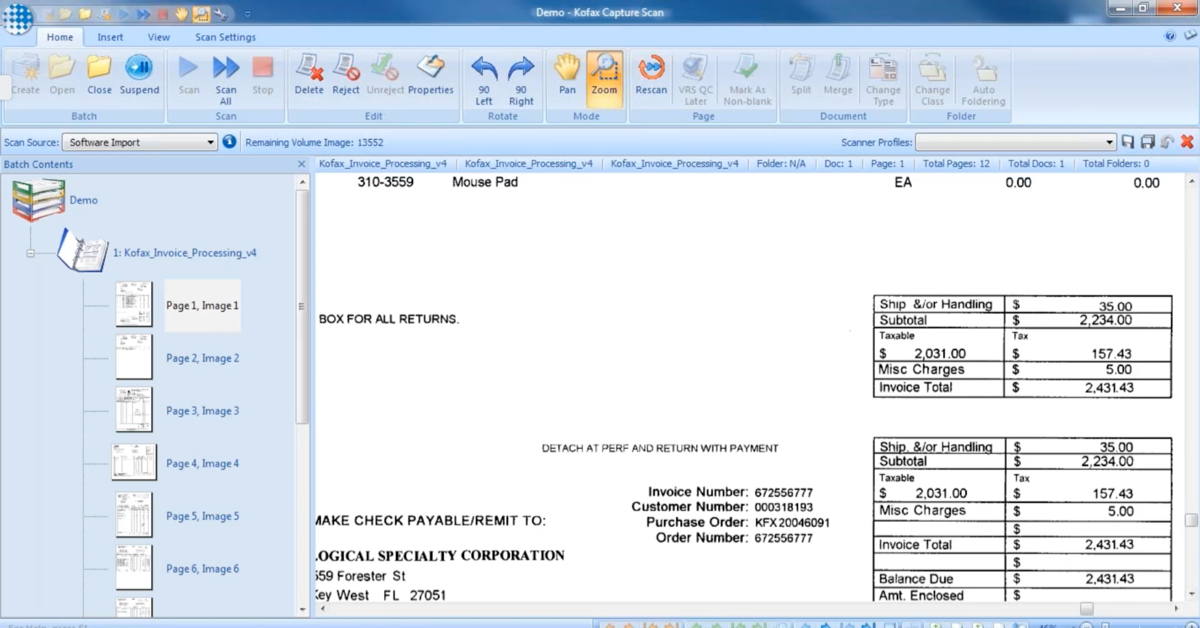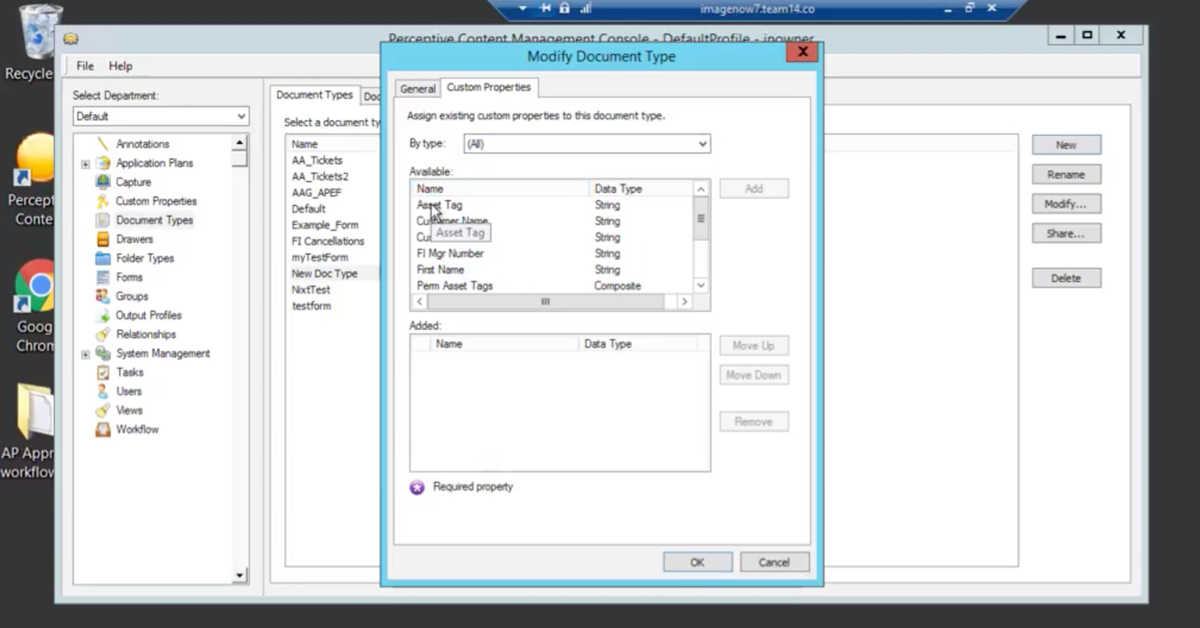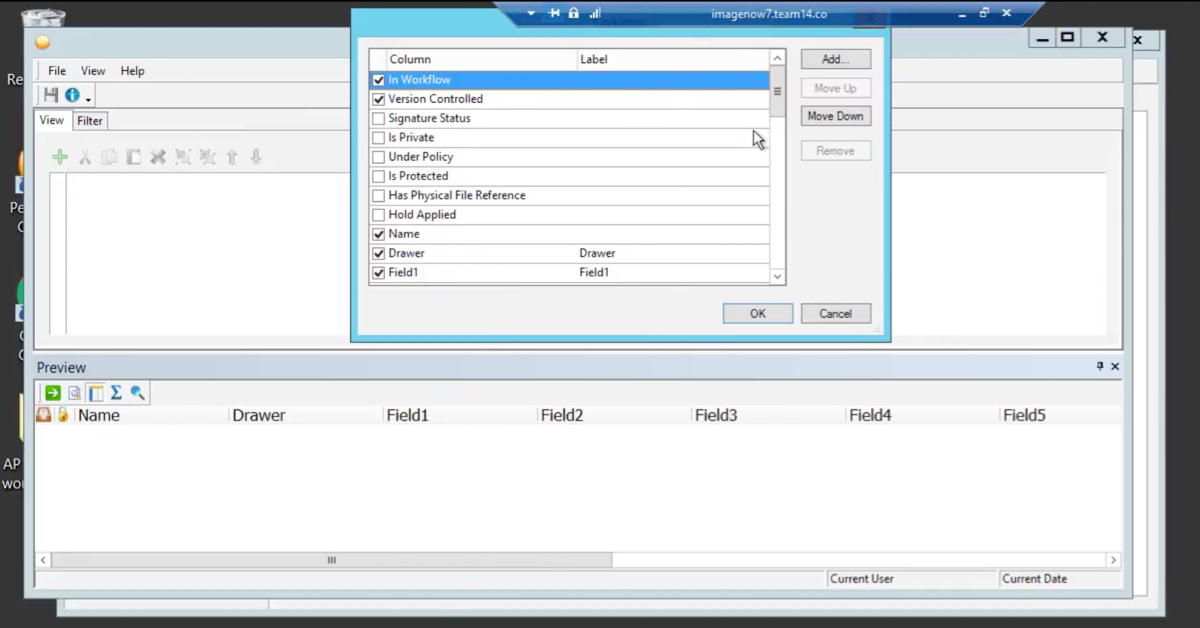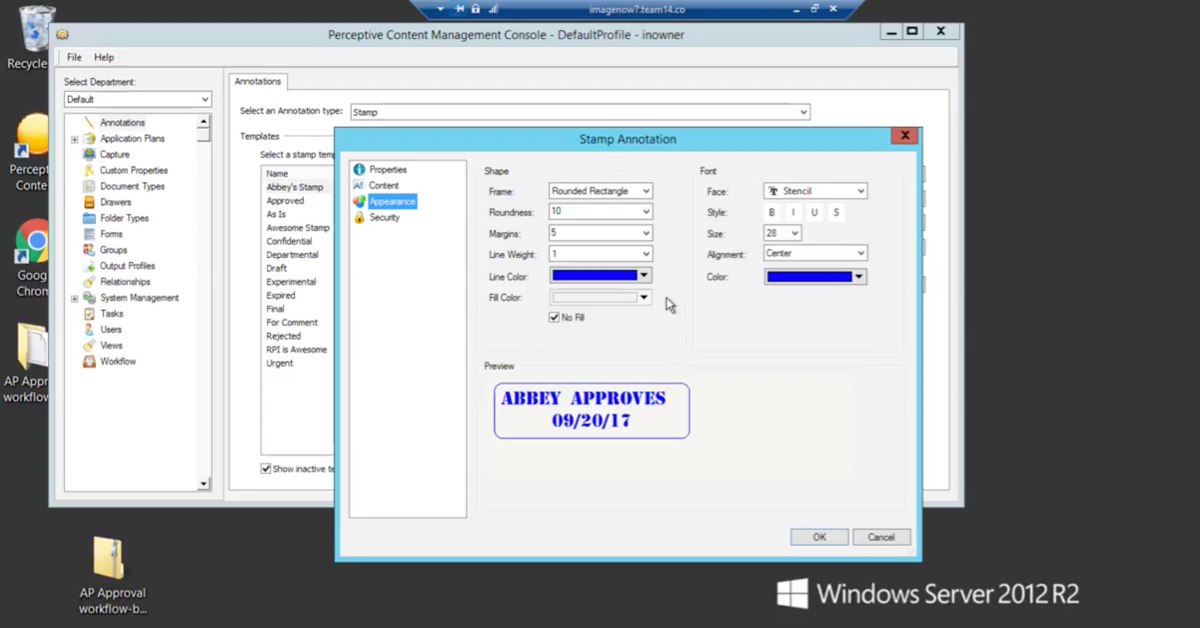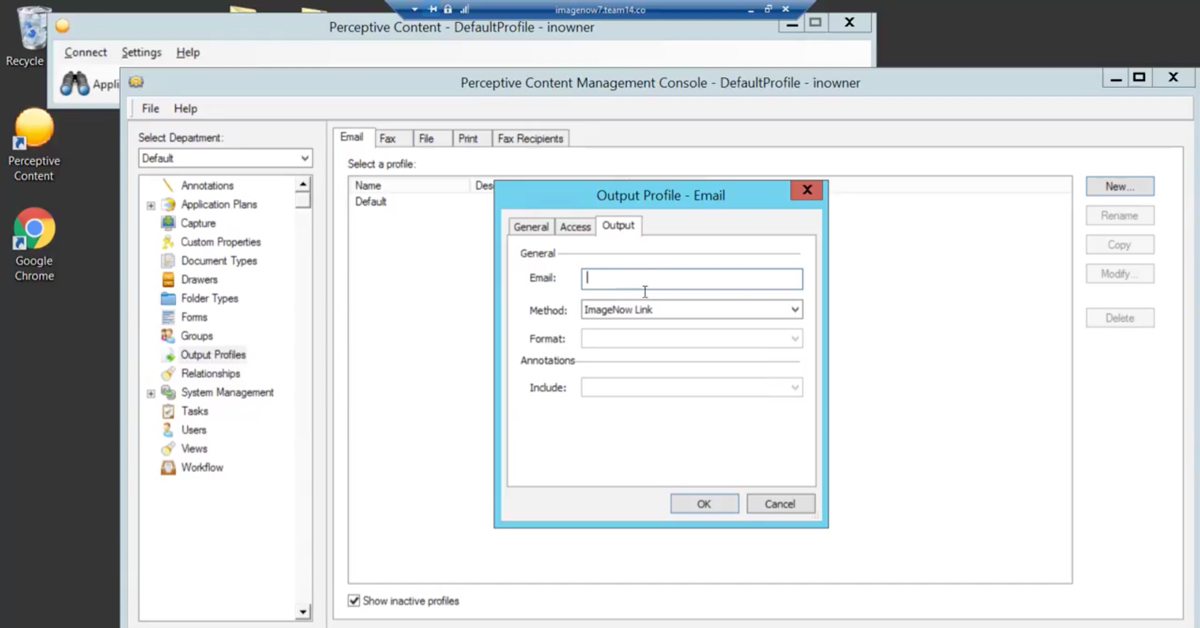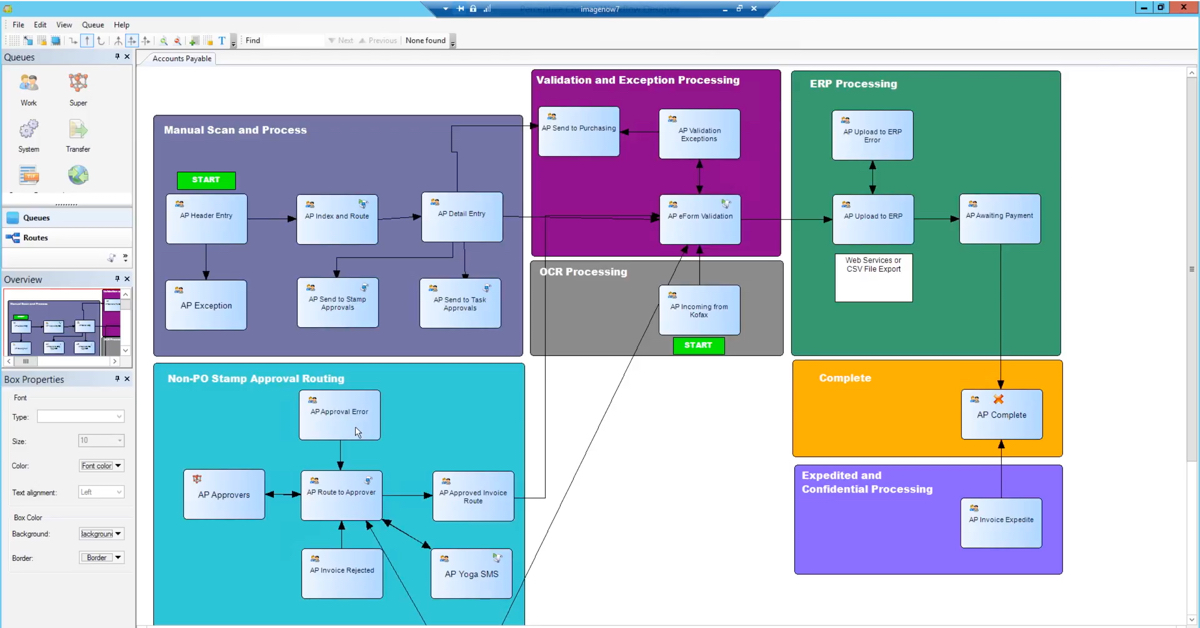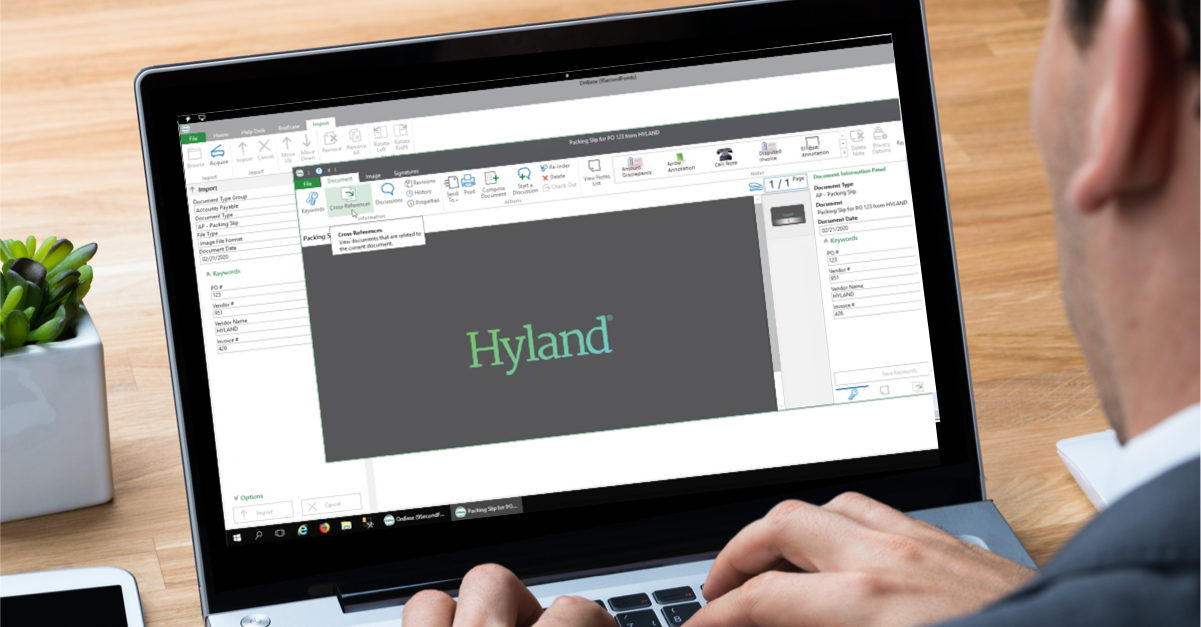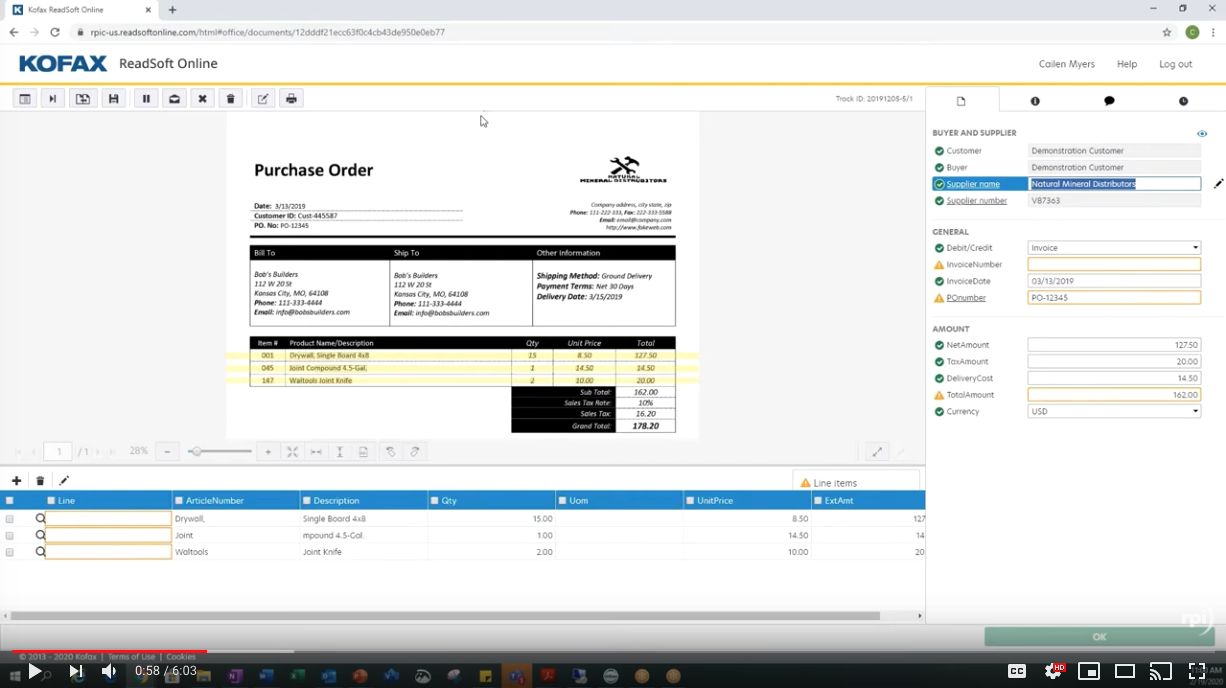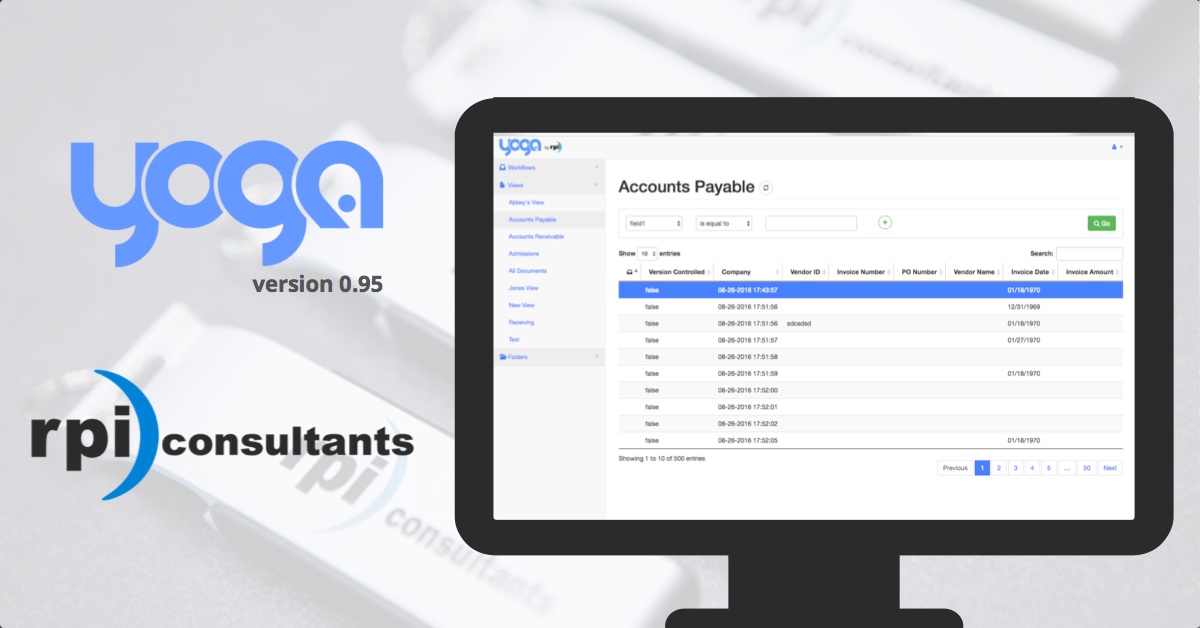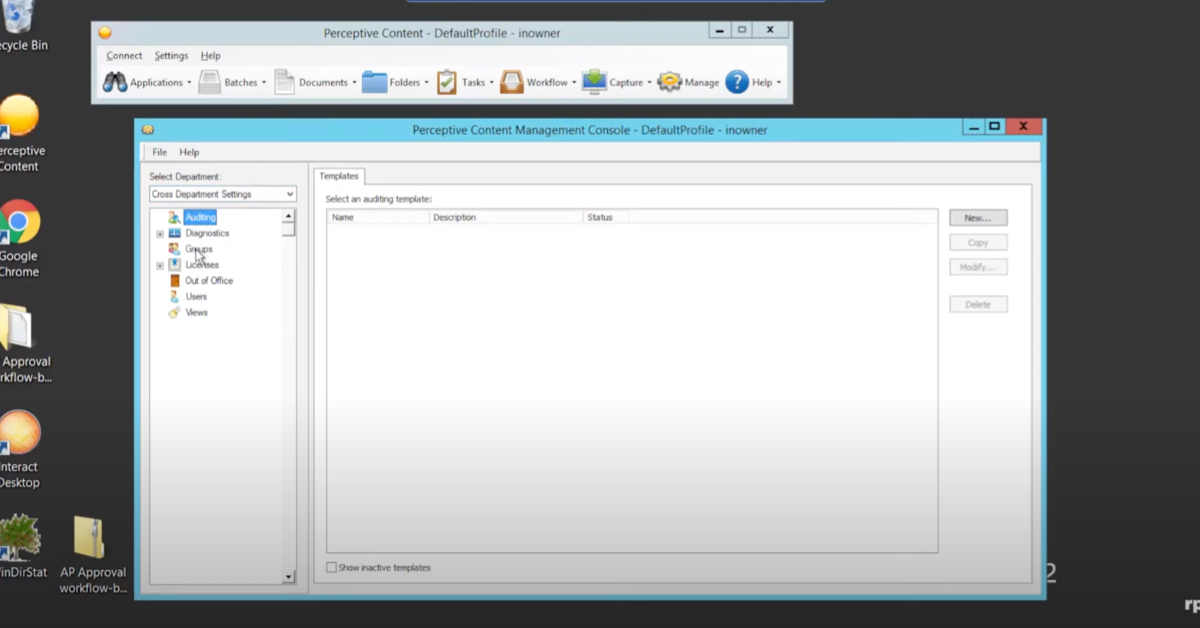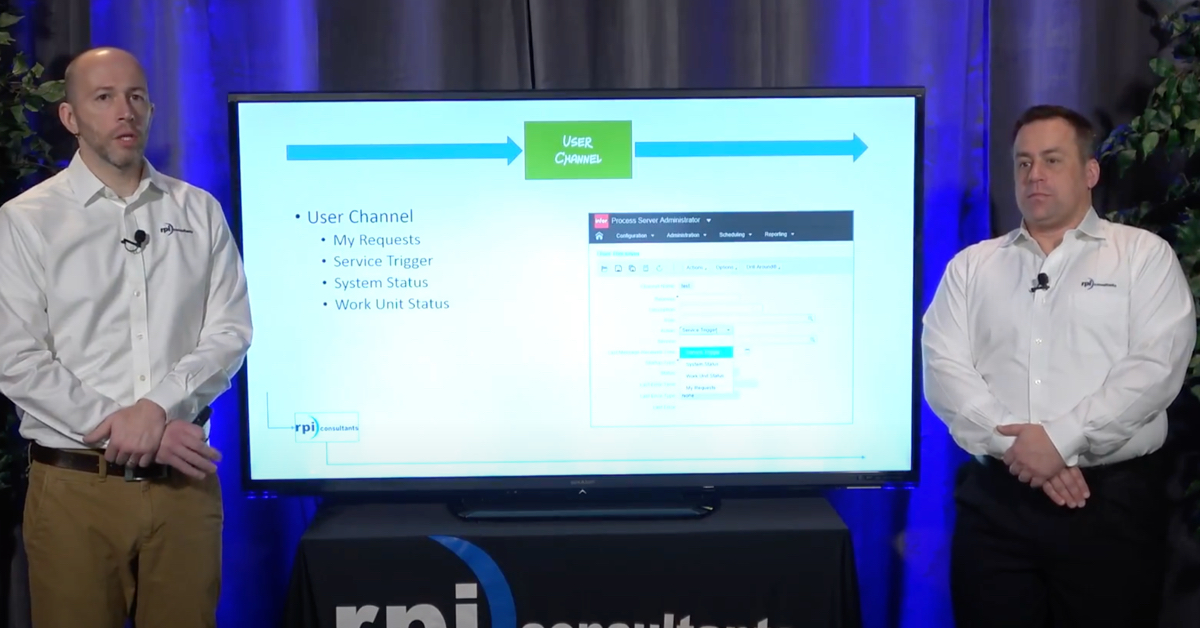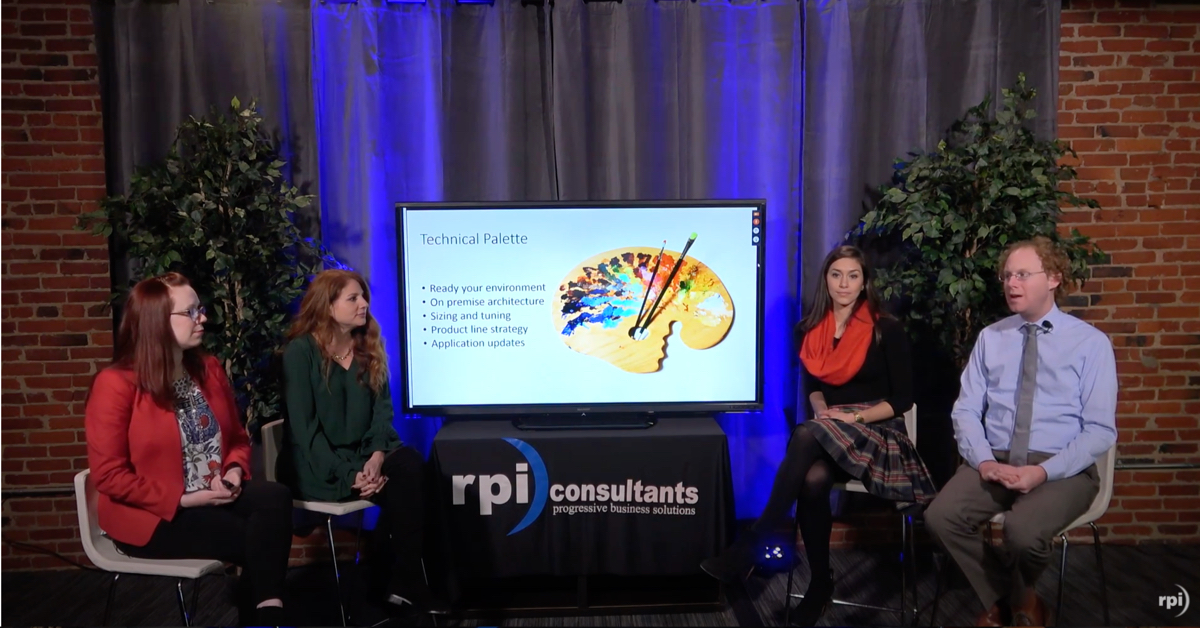Chad Tucker:
Good afternoon. Welcome to webinar Wednesdays with RPI Consultants. Today we’re doing our Perceptive Content 7.2.3 and learn mode updates.
Just a few housekeeping items. We do these webinars the first Wednesday of each month. We have some folks available in the background to take questions throughout the webinar that we’ll address afterwards. Be sure to stay tuned for our Yoga link webinar after this one.
Sean LaBonte:
So on today’s agenda we’re going to cover a little about RPI Perceptive Content 7.2.3 updates and learn mode enhancements, and the updates to content apps 2.4.
Chad Tucker:
My name’s Chad Tucker. I am a Manger of Solution Engineering at RPI Consultants. I used to be a system administrator for a hospital. Today at RPI I’m responsible for designing and scoping our custom solutions and I am a marine Veteran.
Sean LaBonte:
My name is Sean LaBonte. I’m a project coordinator with RPI. I’m responsible for managing the scope, budget, and timeline for multiple client projects and I’m still as the city’s most eligible bachelor.
Chad Tucker:
Just a little bit about RPI Consultants. We have over 80 consultants, project managers, technical architects across our offices located in Baltimore, Tampa, and Kansas City. We provide software consulting services for Infor Lawson, Perceptive Content, OnBase Brainware, Kofax suite of products.
We are a partner with Hyland and an authorized solution and service provider for both Perceptive Content and OnBase. We do everything from invitations, upgrades, health checks, custom integrations, and development.
Sean LaBonte:
So first we’re going to cover the Perceptive Content 7.2.3 updates. Most notably, we’ll start off here with the technical architecture looking at database support. The updates include Microsoft’s SQL Server 2017 capability, for Oracle 12CR2, that way you can take advantage of new security enhancements and post scripts.
Another architecture update would be for RabbitMQ, which allows for a high level of security enhancements surrounding TLS with Java. Pivotal, the maker of RabbitMQ, has also announced that 3.6, the version 3.6, will be nearing its end of life cycle here shortly. So it’s great that we’re now including 3.7 message brokers support.
Continue. We’re also looking at Tomcat 9 Web service support for versions of 7.2.3, 7.2.2, 1.5, and it’s going to utilize Java 8 or greater. Also, the file conversion service has been upgraded to version 4.2.1. This is going to be a pre-requisite for Experience Content Apps 2.4. We’re going to be utilizing a new call enhancement. This will be using a stateless API and image rendering process.
Previously there was a two call method to render images. This would definitely cause some slowness. So now we’re removing integration server dependency for rendering images to speed up the process here a little bit.
They’ve also included a status resource edition, for just checking the overall status of FCS. Sometimes there can be a little bit of confusion around these acronyms: FCS and FCC. File conversion service and file conversion component are two separate entities.
FCS is all about rendering images in a client, while FCC converts files to different image formats in Imagenow.
Also we want to go over a couple of the notable server updates with integration server. This is really specifically toward status monarchy. So now you’re going to be able to look at your server up or down status. We provided an XML example, so you can see what that looks like. One of the biggest points here to call out is you can now do this without providing credentials to a rest call.
So this is going to be convenient for integrating with web based monitoring tools. I’ve also included the 7.2.3 release notes in the slide for reference material. Later on make sure to check this out after the webinar.
Speaker 3:
I’m going to pop in with a question here real quick. A couple of slides back you mentioned Java or support for Java version 8. Is that … the question was will Java version 8 be needed for the client or only for server use?
Chad Tucker:
Java version 8 is as it relates to Apache Tomcat and what’s supported by Apache Tomcat, not necessarily the WebNow client.
Speaker 3:
Okay.
Sean LaBonte:
Alright. Next I want to cover a new functionality here, a new feature added an upgrade, as is the ability to email experience URL links to documents utilizing a new method seen here with the experience URL.
Previously you could only do this is the WebNow thick client links. Now you can send the URL based on drawer, a drawer and doc type. This is all configured with an INI that we’ll show here on the next slide.
Also note that Hyland is making an effort to make Perceptive Content 7.2.2 compatible with 7.2.3, but this feature right here is only compatible with 7.2.3.
Chad Tucker:
Right, this is as it pertains to the client version. So you could have a perceptive 7.2.2 thick client where they 7.2.3 server installation. However, you would not be able to utilize this new experience URL functionality.
Sean LaBonte:
So here’s an example of the INI configuration where you can you know configure based on the drawer and drawing doc type that we mentioned earlier.
Give that a moment. Good. Alright, I believe Chad can provide a use case for the default configuration.
Chad Tucker:
So, an example may be here if you’re going to email a link to an API invoice document you may want to configure the user experience for that content apps link to maybe include an e-form so you can show the GL coding lines of an invoice. Maybe there’s a different user experience use case for something other than an invoice where you know you don’t want to show a form, you don’t want to show their property, you just want to show the image and what they can do with the image. Export it, download it, route it forward, things like that.
So this just allows you to tell that user experience based on drawer document type for different areas on the business that are using Perceptive Experience.
Sean LaBonte:
So next I’d like to cover the LearnMode Enhancements that are included here lately. We need to go over this new integration functionality was released in May 2018 for patches specifically 7.2.2, 4.4.3, and 7.1.5, 1.8.9.9. Now within the release notes this does specifically talking about integration with Illusion Banner 9 and Colleague UI5 utilizing his methods of app get data and app get tree. App get tree is the new method that they’re going to be utilizing.
So previously you had to make multiple calls for all the data in a web page. With shifting values, this can cause slowness. So with the app get tree method, we can now pull all that data in one single call, definitely speeding up your process here.
So any web based ERPs can now use this method to speed up learn modes. For example Lawson, JD Edwards, or PeopleSoft. And of course if you’re looking to continue and further improve your indexing capabilities, make sure to stick around for our Yoga webinar after this, later this afternoon.
Chad Tucker:
Great, now we’re going to talk about the updates to Perceptive Experience content apps version 2.4. 2.4 was released alongside of ImageNow 7.2.3. Most information talked about here can be found in the release notes, which was on docs.hyland.com. 100% of experience content apps. The enhancement are to the different modules of the content apps. So you have your documents module, your document viewer, and your workflow components. Some UI enhancements and some enhancements to the performance based on the way that they’re caching data for frequently used calls. So things like drawers, user security, if those are changed you’d have to relaunch the client to refresh those values.
One of the most significant updates on the docx module and the workflow module is the public and private filters. So now within perceptive experience you can see both prompted and unprompted public and private filters.
We’ve got a screenshot of what this looks like today. You’re given an example of a prompted data filter in perceptive experience on a document view. Here we have what private views look like. So here on the left we have screenshot of the inside of Perceptive Content: what a private filter looks like and then inside of perceptive experience what a private filter looks like.
In the thick line you can see it kind of draws a distinction between what’s a public and a private filter, but you kind of know how that distinction and experience. Not super important, but just a notable difference.
The other thing that’s really important in this is the ability to change the name drawer and document type within a document viewer. Previously you could only do the index keys and custom properties. With this latest update you can now re index any of the metadata on a document, but just note that this is still driven by workflow through configuration security. So deciding what users or groups have the ability to access which fields on a document is still driven through configuration of the workflow queue itself.
The other update to the document viewer module is re-contexted actions on the mobile interface. They’ve been redesigned to be more contextually aware of where you’re at in the mobile app. So, for example, on these screenshots here, on the left side we had a document open in the mobile viewer. You could see the context menu has all the different actions that you would be using when you have or you’re viewing an image of a document. So down in that for an email, putting on a hold, printing the document. If you’re opening the document within workflow, routing it forward, versus if you’re outside the Document Viewer and you’re just in a workflow view … you know the context options are more limited and only have the route forward and route back capabilities.
On the Workflow viewing screen, there’s been some updates to the toolbars to provide some more actions that were previously only available on the document viewer. Making better usability for perceptive experience and private and public Workflow filters are also added on to Workflows. So not only document views, but Workflows also. You can run Workflow process views also now.
Just a few additional details that we want to go over as it relates to upgrading to 7.2.3 and content apps 2.4. You have to go to 7.2.3 to use this latest version of content apps. Private filters and views: you still have to create those in ImageNow client. Once they’re created in the client, they will show in perceptive experience.
The re-index capability, as I said before, is still governed by, even though it’s available, still has to be available in the Workflow key configuration. As far as emailing documents out of perceptive experience, you still have to download the document and manually attach. There is no direct opening of the email client to email a file attachment.
All versions of the latest APE form are able to be used with the perceptive experience client.
Sean LaBonte:
Alright and a few more details before we wrap up here. The Perceptive Content desktop client 7.2.2 can even be used with a Perceptive Content application server 7.2.3 components. However, you will be missing the email experience links functionality. Anonymous user query parameters are supported in perceptive experience. It’s not recommended for use due to inability to drive security though.
WebNow has no sunset date, however, the focus is growing on the experience platform. Folders are still not available in experience as of content apps 2.4, but the feature is on the 2019 roadmap. OLE annotation type will not be supported in experience due to technology limitations and learn modes are not on the roadmap for perceptive experience in the future due to further technology limitations.
However, stick around for our next webinar for a different solution to that same type of functionality.
Chad Tucker:
So this concludes our presentation. Appreciate you guys taking the time to join us. I’m going to open the floor for questions here for anything that we didn’t cover.
Speaker 3:
Thanks guys. One question is can you talk a little, and feel free any attendees use the questions pane inside the GoToWebinar window to submit questions. One question is can you talk a little bit about the perceptive and experience roadmap?
Chad Tucker:
So, Hyland has committed to the perceptive experience platform. Even before the acquisition, they were definitely, it was the focus of ImageNow, was to get that modern HTML web client and Hyland has continued to elaborate on that roadmap. There are roadmaps released for the future of the features and those can be through your Hyland account rep. Those roadmaps can be shared.
Speaker 3:
Thank you. Another question: just to clarify the patches with the learned mode enhancements do not required me to upgrade to 7.2.3?
Chad Tucker:
That’s correct. Those specific patch builds of version 7.1.5 and 7.1.2 can be used to take advantage of the new learn mode functionality.
Speaker 3:
Okay. Looks like that’s it.
Chad Tucker:
Okay.
Speaker 3:
Will RPI be at Community Live conference next week?
Chad Tucker:
RPI, we have John Marney, our solution delivery manager and we have Jim Fall, one of our senior account executives who will be at Community Live next week.
Speaker 3:
Yep, just shoot us an email if you want to setup some time to chat.
Sean LaBonte:
Alright. Thank you all for all the great questions. We review these topics at the high level so if there are any topics that we didn’t cover or items you’d like us to dive in greater in detail, please let us know for future webinars. If you visit our webinars page you can register for upcoming webinars and you can also watch recordings of all of the past webinars. You can also visit our knowledge base which has a lot of great content, including free white papers, case studies, live demos, and help articles.
Thank you for dialing in, we hope to hear from you soon.


